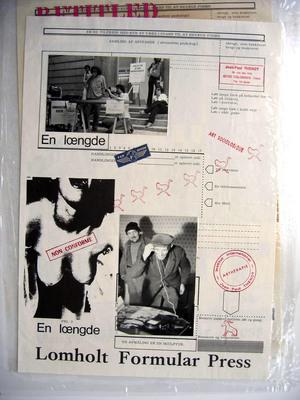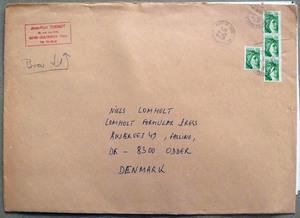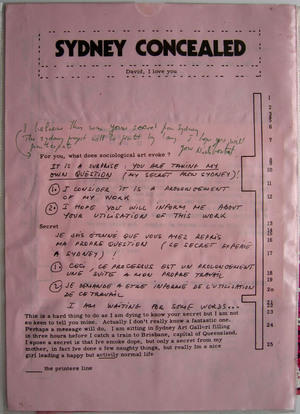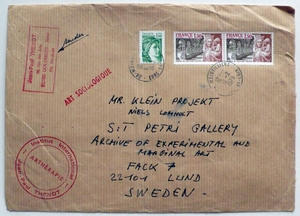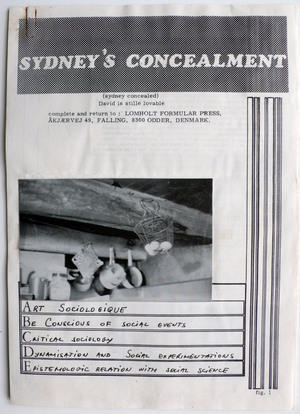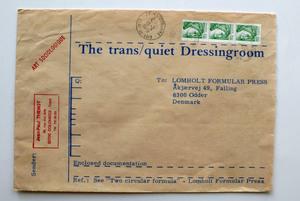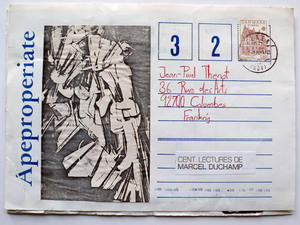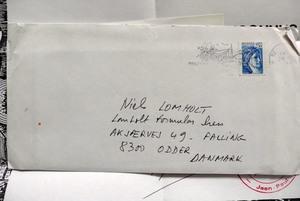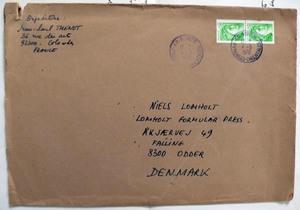Index: Jean-Paul Thenot
Biography
Jean-Paul Thenot (born 1943, France) was trained as a psychotherapist, a profession he continued while producing art. Around 1969, he began creating artworks, beginning with his “Interventions in the Street,” which consisted of a series of scaled sculptures of everyday objects, such as mousetraps, set up in public space. Around 1970, he moved away from producing objects into largely textual and conceptual works, such as his “Constats d’existence,” typed pages of commentary on contemporary artists that were mailed to various figures in the art world. In 1972, he began conducting interactive surveys about art and perception. In response to the infamous, state-sponsored “Expo 72” (“Douze ans de l’art contemporain en France”), he carried out a large survey inviting respondents to select the most representative French artists and then declared the person whose submitted list was closest to the averaged, final list the honorary curator of a public exhibition opening that May.
Together with Hervé Fischer and Fred Forest, Thénot formed the Sociological Art Collective in 1974, as an artistic movement and approach to aesthetics that emerged in France. The history of sociological art might also be traced through the independent practices of Fischer, Forest, and Thenot, themselves engaged in a dialogue with broad international artistic tendencies towards social engagement and the social sciences, and the intellectual histories of social art history and sociology of art.
